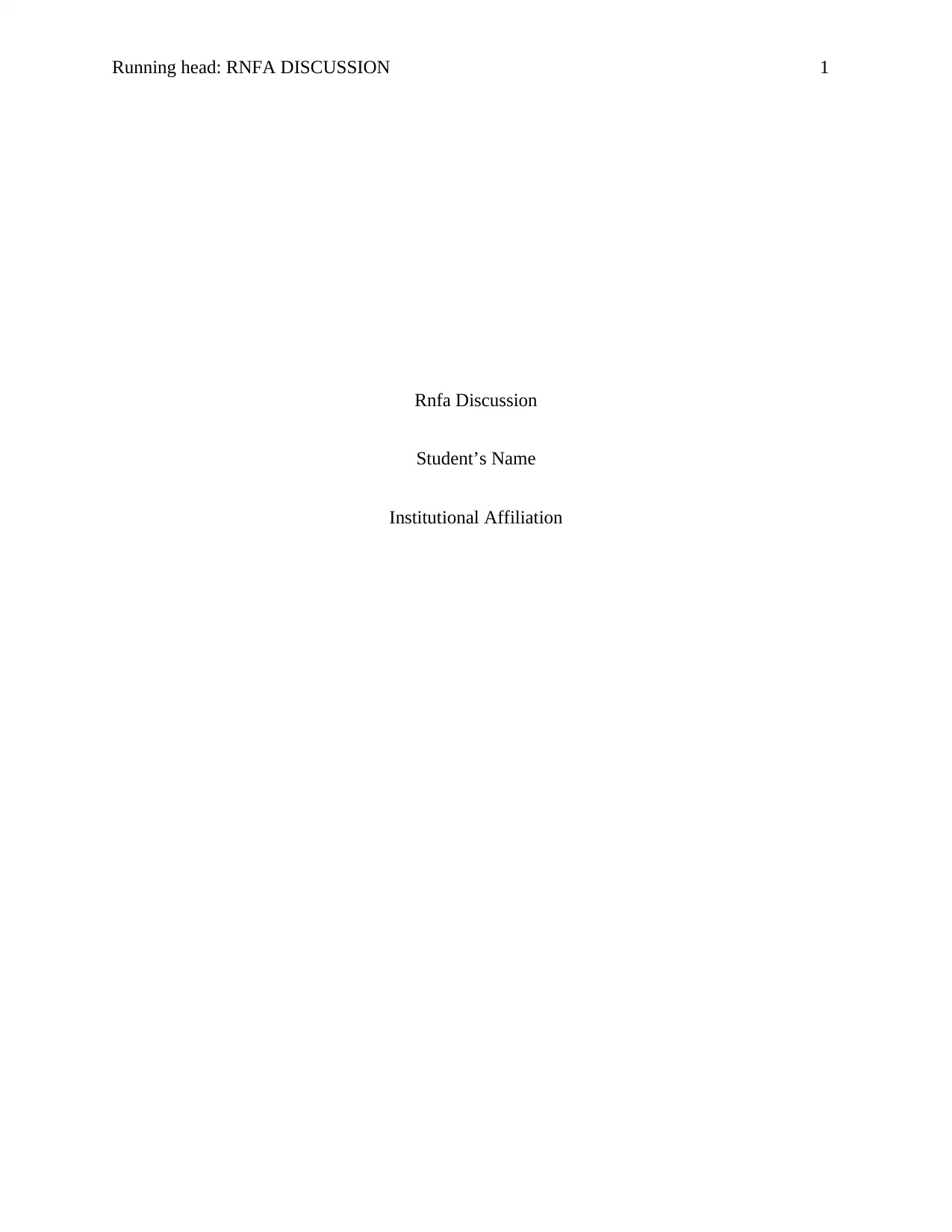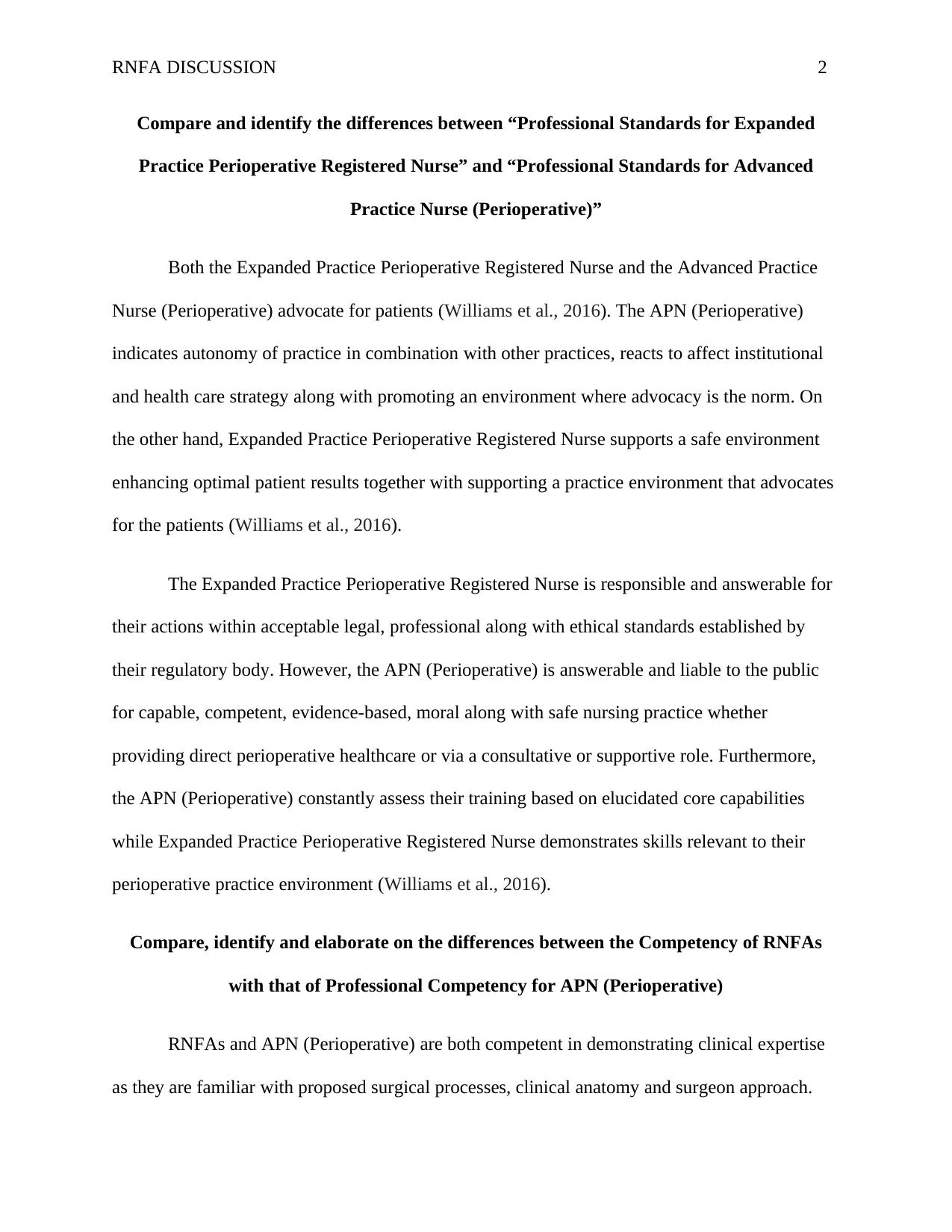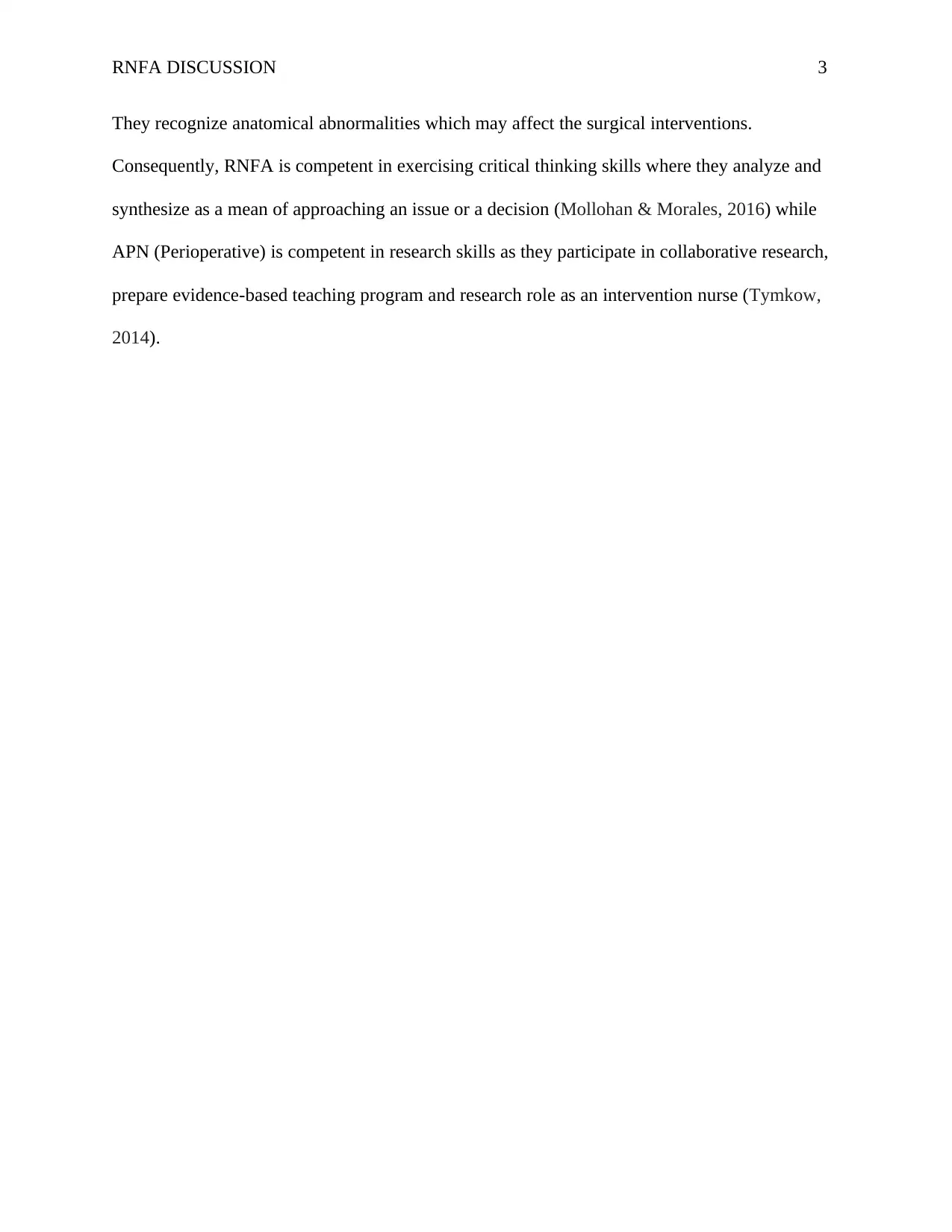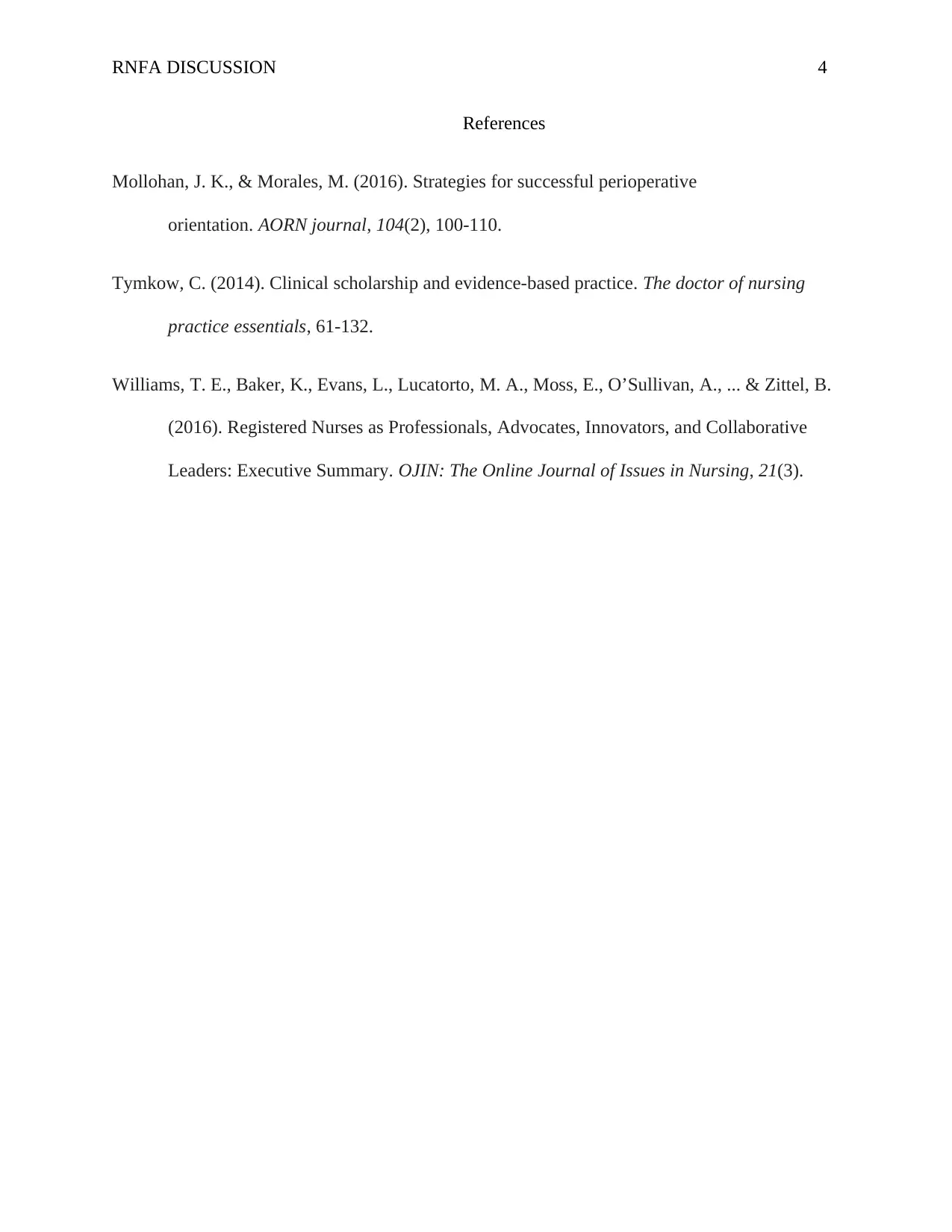RNFA Discussion: Professional Standards and Competencies Comparison
VerifiedAdded on 2023/06/04
|4
|503
|165
Discussion Board Post
AI Summary
This discussion compares and identifies the differences between the “Professional Standards for Expanded Practice Perioperative Registered Nurse” and the “Professional Standards for Advanced Practice Nurse (Perioperative).” Both advocate for patients, but the APN demonstrates autonomy and influences healthcare strategy, while the Expanded Practice RN supports a safe environment. The APN is accountable to the public for competent practice, while the Expanded Practice RN is responsible within legal and ethical standards. The discussion also elaborates on the differences between the competencies of RNFAs and APNs, highlighting that both possess clinical expertise, but RNFAs excel in critical thinking, while APNs are competent in research skills and evidence-based practice. Desklib provides access to this and other solved assignments to support students.
1 out of 4











![[object Object]](/_next/static/media/star-bottom.7253800d.svg)